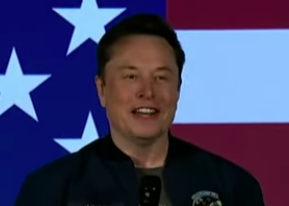We support our Publishers and Content Creators. You can view this story on their website by CLICKING HERE.
There are days when I’m tempted to join the Elizabeth Warren/Bernie Sanders/Joe Biden crusade to impose confiscatory taxes on billionaires. Not for economic or fiscal grounds, or even less for making billionaires “pay their fair share” (“fair share” in liberal speak just means “more”). To the contrary, I’m starting to think we should take the fortunes from many billionaires to stop them from doing more harm than the government does when it taxes and spends and borrows our money. And that’s saying something!
Barron’s reported this week that billionaires are ramping up their philanthropy considerably. But not just to any old traditional charities, but to “transformational” charity. As Barron’s reports:
The report underscores a philanthropic community concerned with ongoing global and socioeconomic issues, as individuals and younger donors feel more empowered to make tangible change on their own as opposed to working with established public institutions and foundations.
As younger people begin to make up a larger portion of the world’s wealthiest, there’s an increasing desire to make a “visible and ‘transformational’ impact,” the report said.
God save us from this kind of “transformational philanthropy.” What “transformational” means is making large grants to visionary do-gooder NGOs that will in practice do no-good, if not actual harm.
A good counterpoint to these billionaire pretensions was offered Friday in Barron’s sister publication, the Wall Street Journal. Scott Bessent notes on the WSJ op-ed page that was Sam Bankman-Fried’s pretensions about “effective altruism” were a central part or cause of his massive financial fraud. He thought he was so much smarter and better intentioned that the rules didn’t apply to him. (Seriously, can anyone name a great philanthropist of the past, say Andrew Carnegie, whose purpose was ineffective altruism?)
Bessent:
He acted as if he were above the law. He played fast and loose with customers’ assets because he thought he knew better. He lied to customers about the safety of their assets, lent them to himself to speculate with in his hedge fund, and concealed the resulting losses by “borrowing” still more from his unwitting clients. This is the stuff of garden-variety Ponzi schemes. . .
His lawyers would have us believe that because Mr. Bankman-Fried “never valued or desired great personal wealth or status,” he lived frugally, he is “unable to experience joy or pleasure,” his guilt is mitigated. In fact, his moral arrogance drove his crimes. . .
By arguing that he deserves a lighter sentence because his motives were supposedly altruistic, Mr. Bankman-Fried’s legal team is asking Judge Lewis A. Kaplan to endorse the same twisted moral calculus that led the defendant into criminal activity in the first place.
It doesn’t matter if you agree with Mr. Bankman-Fried about how to make the world better, whether you support his veganism, his global-warming alarmism or his priorities for spending his ill-gotten gains. History teaches us that the greatest crimes are committed by those who believe they are mankind’s benefactors.

 Conservative
Conservative  Search
Search Trending
Trending Current News
Current News 
![What the Court Did On Immigration [Updated]](https://freeread.causeaction.com/wp-content/themes/Extra/images/post-format-thumb-text.svg)




